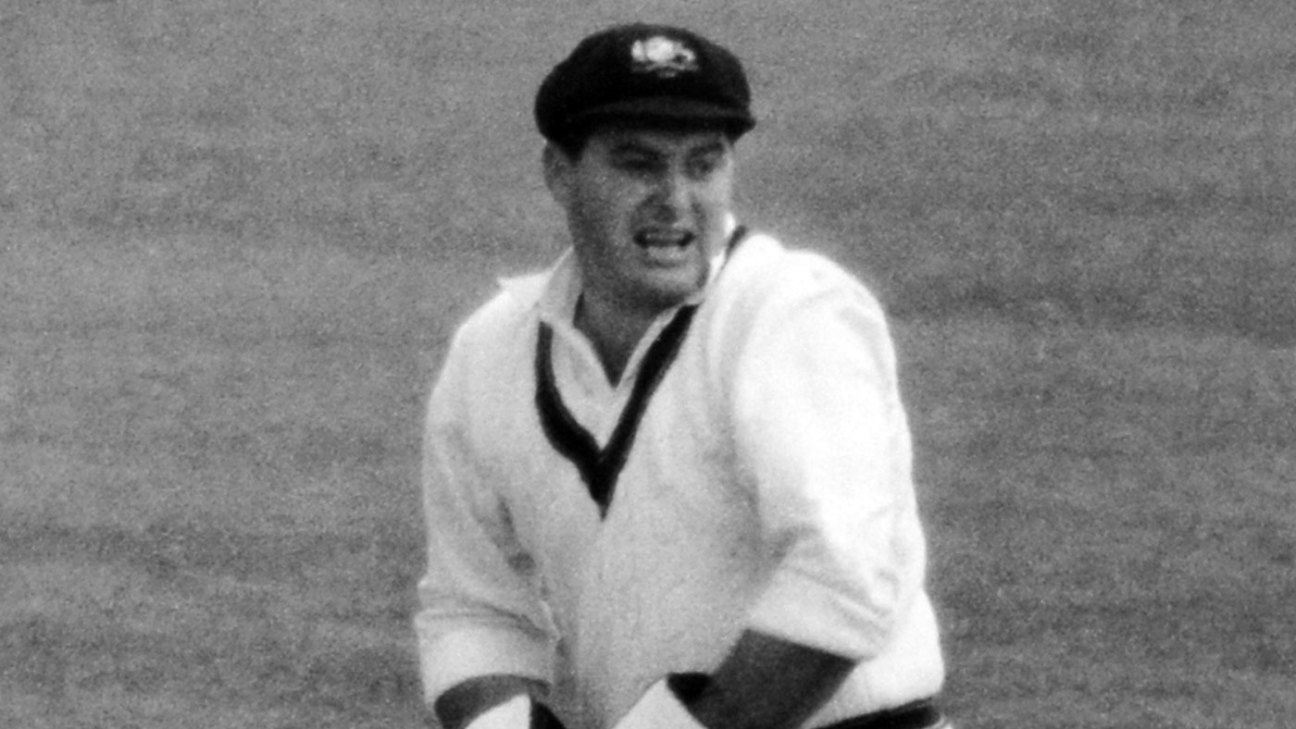Barry Jarman, Australia’s 33rd Test captain, wicketkeeper and later ICC match referee, has died in Adelaide aged 84 after illness.
As a highly skilled gloveman and punchy lower order batsman for South Australia, mentored by his predecessor Gil Langley, Jarman spent his entire cricket career at the front rank of Australian cricket, only to see his chances of playing more Test matches stymied by the selectors’ preference for the older Wally Grout.
After making his debut against India at Kanpur in 1959 at the age of 23, Jarman was Grout’s reserve for no fewer than 27 Tests over six series before his next chance, against England in 1962, and did not become Australia’s first-choice until a home series against India in 1967-68, by which time he was 31. By then he found himself competing with the New South Welshman Brian Taber in the era immediately before Rod Marsh’s emergence as Australia’s next long-term wicketkeeper. It is a marker of the times in which Jarman lived that his solution to weight gain as his career went on was, according to Ray Robinson in On Top Down Under: “to sidestep lunch and begin smoking. He peeled off 9kg”.
As a back-up wicketkeeper on so many tours, Jarman earned his reputation as a team man and a jokester, influential in ensuring that touring parties did not fragment into cliques, while also adding to Australian cricket’s nomenclature by coining numerous nicknames – most famously that of “Rowdy” for the taciturn South Australia spin bowler and writer Ashley Mallett.
Strong regard for Jarman’s skills as a wicketkeeper and a leader were underlined when, with Bill Lawry injured and out of the fourth Test of the 1968 Ashes series at Headingley, he captained his country. Jarman duly secured a draw that ensured England could not regain the urn, even if some had hoped that the longtime lieutenant of the enterprising Les Favell in SA would have taken a more aggressive approach to a Test the Australians had much the better of.
Jarman went on to play out the following home summer, a successful one against the West Indies taking his Test match tally to 19, before hanging up his gloves at the conclusion of the season – at the time of his retirement, only Grout and Bert Oldfield among Australians had claimed more than Jarman’s 560 first-class dismissals, including no fewer than 129 stumpings.
Beyond cricket, Jarman’s joint ownership of a sports store in Adelaide inadvertently began another chapter in Australian cricket lore, when he and his business partner David Rowe employed Barry “Nugget” Rees as an assistant. Jarman, twigging Rees’ love of cricket, took him along to Adelaide Oval to visit the South Australia dressing room, beginning an association that continues to this day.
In the early 1990s, the ICC’s commissioning of neutral match referees to oversee player behaviour for international matches brought Jarman to prominence once again, as he presided over 25 Tests and 28 ODIs between 1995 and 2001. Perhaps the most notable of these was the abandoned Test match between West Indies and England at Jamaica in 1998, called off within an hour due to the dangerous nature of the pitch.
“[The umpire] Venkat got in touch with me and said, ‘What do you think?’ I said, ‘I think it’s horrific’,” Jarman said at the time. “I told him, ‘You do what you want to do and you’ll get support from me.’ I spoke to Mike and Brian and they said, ‘We both agree it’s too dangerous and someone’s going to get seriously hurt’. The pitch is just nowhere near up to standard.”
Jarman was also the match referee for the infamous Centurion Test between South Africa and England in 2000, where after several days of rain, the Proteas captain Hansie Cronje engineered a fourth innings chase for the visitors after two innings were declared closed at 0 for 0 with Jarman’s blessing. England won late on the final day, and Cronje was to confirm that he had been influenced to open the match up by illegal bookmakers as part of what was later revealed to be a long and sordid history of match-fixing. Jarman, though, had not seen anything untoward.
“I cannot remember anything that really made me think that way,” he had said in April 2000. “I have been a betting man all my life and I know what has been going on, but there was nothing there to suggest that anything was being manufactured.”
